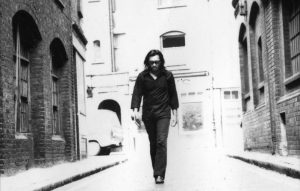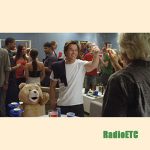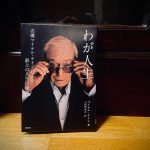映画『Searching For Sugar Man』(シュガーマン 奇跡に愛された男)でアフリカ英語
 1970年にアメリカで発表されたアルバムSixto Diaz Rodriguez(シクスト・ロドリゲス)の『Cold Fact』。アメリカでは不発、大失敗に終わる一方で、南アフリカでは大ヒット、エルビス・プレスリーよりも有名といわれるほどになります。当時の中産階級の音楽好きな白人のレコード棚には、ビートルズの『アビイロード』、サイモンとガーファンクルの『明日に架ける橋』、そしてロドリゲスのアルバムが必ずあったとのこと。しかし、そのことはなぜか30年近く本人に知らされることはありませんでした。
1970年にアメリカで発表されたアルバムSixto Diaz Rodriguez(シクスト・ロドリゲス)の『Cold Fact』。アメリカでは不発、大失敗に終わる一方で、南アフリカでは大ヒット、エルビス・プレスリーよりも有名といわれるほどになります。当時の中産階級の音楽好きな白人のレコード棚には、ビートルズの『アビイロード』、サイモンとガーファンクルの『明日に架ける橋』、そしてロドリゲスのアルバムが必ずあったとのこと。しかし、そのことはなぜか30年近く本人に知らされることはありませんでした。
監督はスウェーデン人のMalik Bendjelloul(マリク・ベンジェルール)。つまり、ドキュメンタリー映画『Searching For Sugar Man』では、アメリカ人の英語、南アフリカの白人英語、そしてスウェーデン人の英語に触れることができます。
アメリカで全く売れなかったアルバムが、なぜ南アフリカで受け入れられたのか。それは、1970年代の南アフリカの情勢に密接に繋がっていました。映画の中のインタビューで、当時のアパルトヘイト政策とはどのようなものだったのか、白人の視点から推し量ることができます。
(“シュガー”・シーガーマン/レコードショップオーナー)
It may seem strange that South African record companies didn’t do more to try and track down Rodriguez, but, actually, if you look back at the time we were in the middle of apartheid, the height of apartheid.
わが国のレコード会社は彼に関心を示さなかった。当時はアパルトヘイトの真っ最中だったからね。
South Africa was under sanctions from countries from all over the world.
諸外国から制裁を受けていて、
South African musicians were not allowed to play overseas.
No foreign acts were allowed to visit South Africa.
海外での演奏や外国人のコンサートも規制。
It was a closed-door situation between South Africa and the rest of the world.
海外に対し鎖国政策をとっていた。
The countries around the world were saying horrible things about the apartheid government but we didn’t know because they controlled the news.
わが国は政界から非難されたが、政府は情報を統制していた。
The majority of the population had been marginalized and forced out of the commerce in areas.
大多数の国民が犠牲となり、商店は強制的に立ち退かされた。
It was what had happened in Nazi Germany. It was a spin-off from Nazi Germany, but if a newspaper published it, they’d get prosecuted.
ナチス政権と変わらなかった。だが新聞は沈黙したまま。
So, because of that, South Africa had achieved a pariah status in the world.
南アフリカは世界ののけ者だった。
There were cultural boycotts. There were sporting boycotts.
文化・スポーツは交流禁止。
It was a very isolated society. So we were cut off.
海外情報を遮断し孤立していた。
We all knew apartheid was wrong, but living in South Africa, there wasn’t much, as a white person, you could do about it, ‘cause the government was very strict. It was a military state, to a large degree.
差別は悪と分かっていたが、我々白人にも限界があった。政府の対応は厳しく軍政のようだった。
If you spoke out against apartheid, you could be thrown into prison for three years.
アパルトヘイトの批判は懲役3年。
So although a lot of whites were part of the struggle, the majority of whites were not.
白人の闘士もいたが、大多数は沈黙した。
You were watched. There were spies. It was scary and people were scared.
密告による監視社会を誰もが恐れていた。
But out of the Afrikaans community emerged a group of Afrikaans musicians, songwriters, and for them, when they heard Rodriguez, it was like a voice spoke to them and said, “Guys, there’s a way out. There’s a way out. “You can write music. You can write imagery. “You can sing, you can perform.”
だが、オランダ系白人(アフリカーナー)のミュージシャンたちが、ロドリゲスの歌を聴いてこう考えた。「これでいこう、打開策になるぜ」と。歌の歌詞なら想像の産物だ。
And that was where, really, the first opposition to apartheid came from inside the Afrikaans community.
アパルトヘイトへの最初の抵抗はアフリカーナーの社会から生まれたんだ。
It was these young Afrikaans guys and, to a man, they’ll tell you they were influenced by Rodriguez.
彼らに影響を与えたのがロドリゲスの歌だ。
政府が情報を統制し、体制に反抗するのには処罰を科す。多くの権力者は、これと同様の手法を用いようとするものではないでしょうか。しかし、アパルトヘイトのような暗黒の時代に至るまでには、過程があったはずです。不幸な時代へ向かっていこうとする流れを、国民一人ひとりがしっかりと見つめていく必要があるのかもしれません。
この映画を監督、プロデュースされたスウェーデン出身のマリク・ベンジェルール(Malik Bendjelloul)さんが、2014年5月13日に亡くなられていました。自殺のようです。36歳という若さ。とても残念です。


















